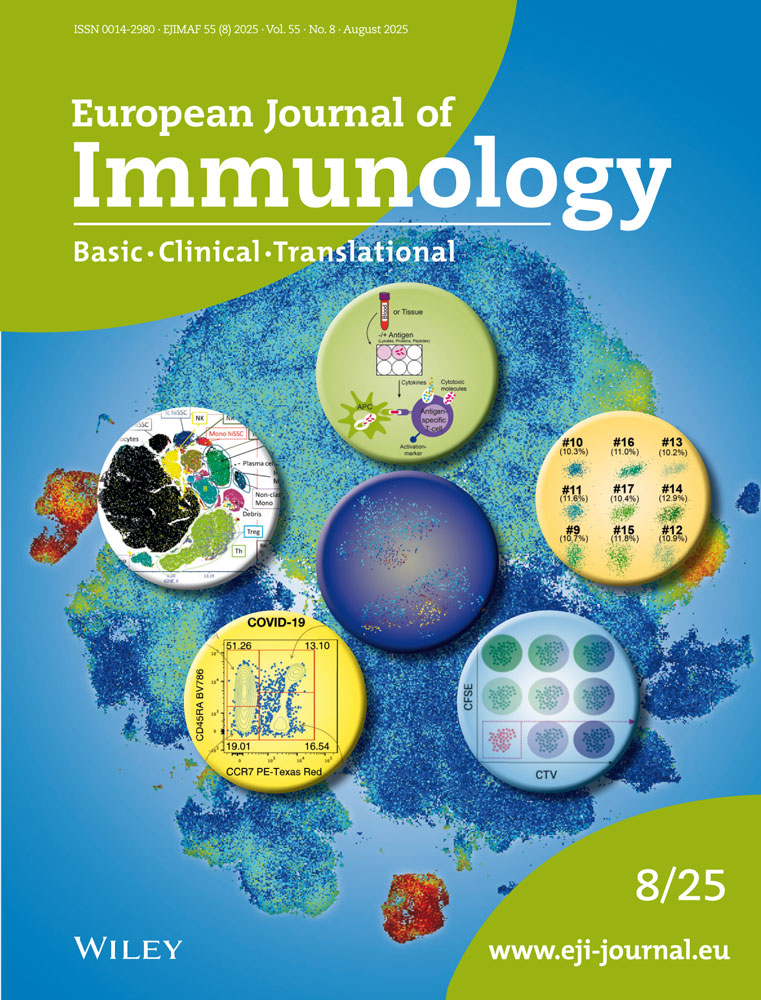T cell activation by anti-CD3 antibodies: function of Fc receptors on B cell blasts, but not resting B cells, and CD18 on the responding T cells
Abstract
Mouse anti-human CD3 (T3) antibodies can induce T cell proliferation in the presence of Fc receptor (FcR)-bearing accessory cells. Depending on whether the particular antibody can interact with the FcR, it can be mitogenic or otherwise. Previously, some of us (Smith, K. G. C. et al., Eur. J. Immunol. 1986. 16: 478) examined human T cell responses to the murine anti-CD3 antibody switch variants UCHT1 (IgG1) and UCHT1B (IgG2b). Using a novel xenogeneic system with mouse macrophages (MΦ) and an anti-FcR antibody, 2.4G2, we obtained direct evidence for accessory function of FcR in these responses. However, mouse B cells which also possess FcR were not accessory cells.
Here we show that resting B cells do not inhibit anti-CD3 responses in the presence of other accessory cells, and they do not synergize with them. They appear to be inert in these responses but this is not simply because of their radiosensitivity. In contrast, B cell blasts proved to be potent stimulators of responses with UCHT1, UCHT1B and OKT3 (IgG2a). All three responses were inhibited by 2.4G2, whereas we have shown previously that the OKT3 response with MΦ was not, in keeping with the known specificities of B cell and MΦ FcR. These findings are discussed in relation to the molecular cloning of FcR, and we consider the possibility that distinct FcR could be expressed on resting and activated B cells.
A report that anti-CD18 (LFA-1) antibodies blocked the UCHT1 response with human monocytes raised the possibility that this molecule might also be involved in accessory function. However, we show that this inhibition is in fact at the level of the T cell, since anti-human, but not anti-mouse CD 18 antibodies, inhibited proliferative responses and clustering with both human and mouse accessory cells. Our results demonstrate that the principal contribution of accessory cells to anti-CD3 responses may be the provision of an FcR, and that CD18 is most probably required at the level of the T cell.




